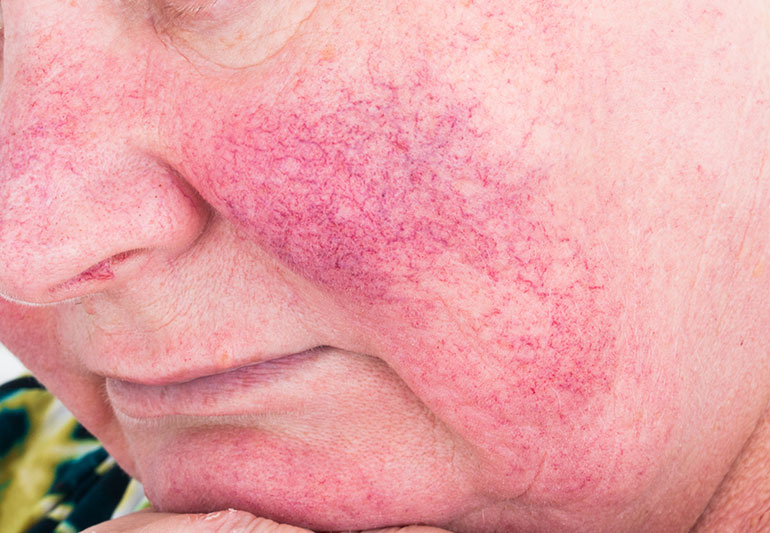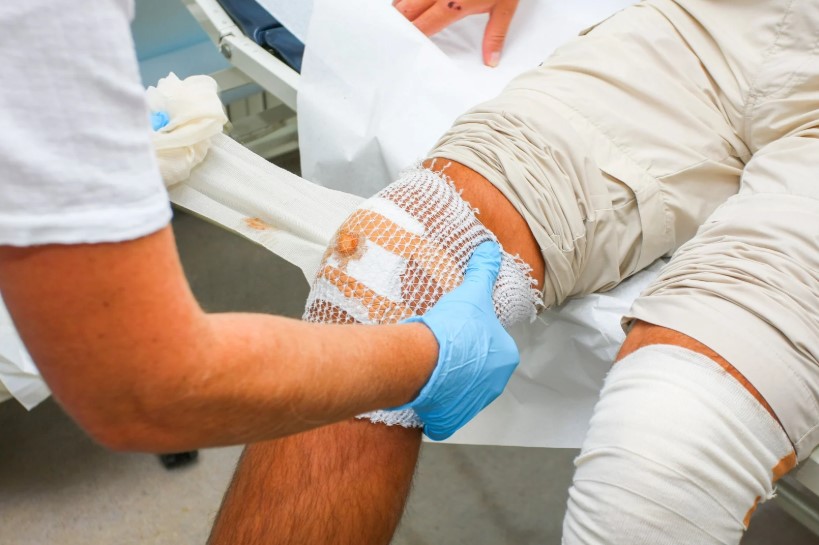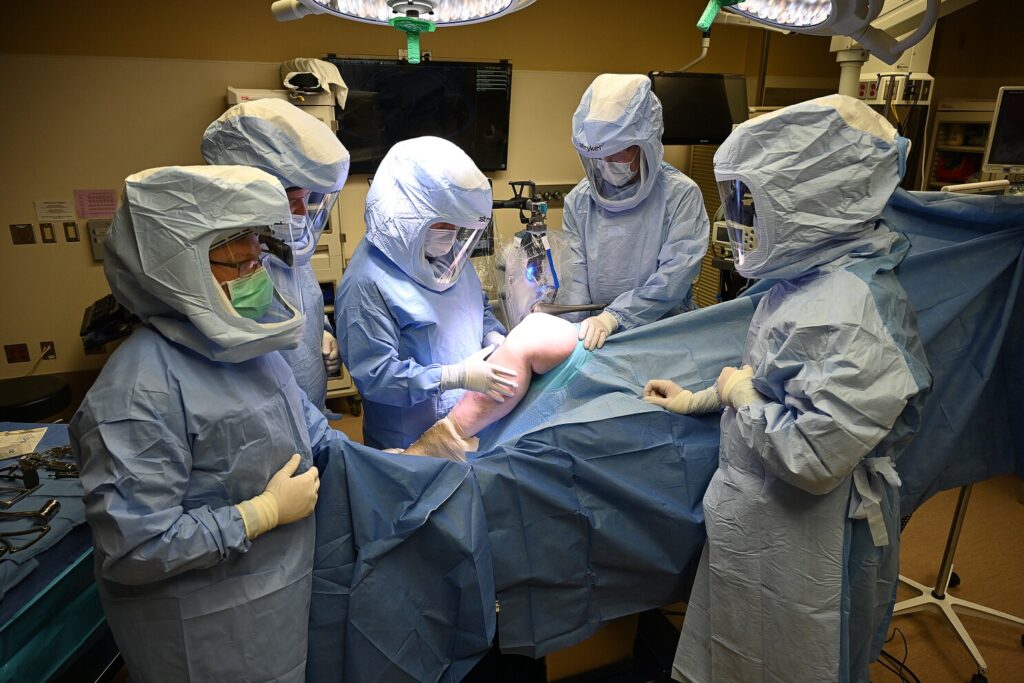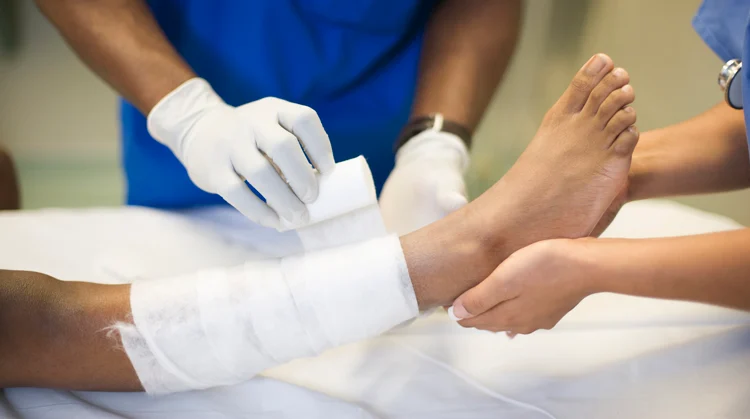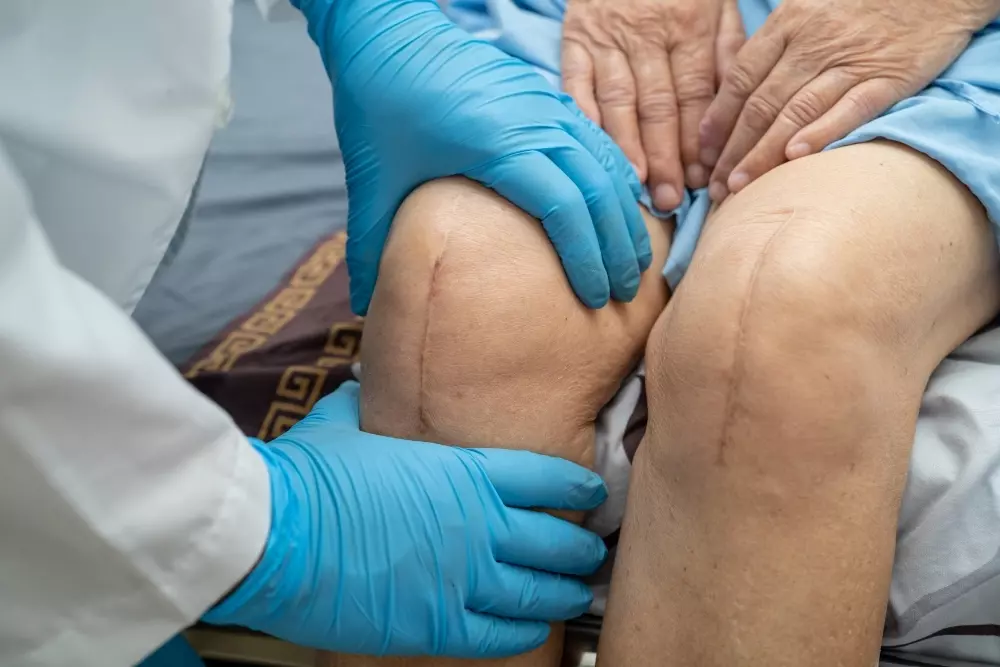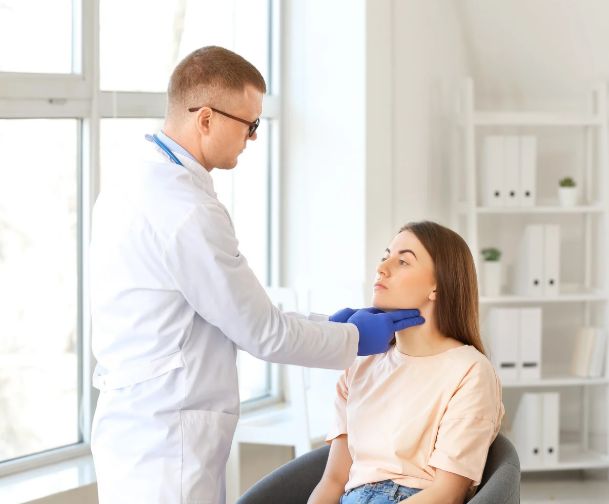Rosacea is a chronic skin condition that affects millions of people worldwide. It often manifests as redness, visible blood vessels, and pimple-like bumps on the face. While its exact cause remains elusive, researchers have identified a compelling link between emotional stress and rosacea, particularly in how stress impacts capillary function.
Understanding Rosacea:
Rosacea is a common skin disorder characterized by persistent redness, flushing, and sometimes pimples on the face. It affects individuals of all ages, typically starting between 30 and 50 years old. The condition can be triggered by various factors, including genetics, environmental factors, and certain foods.
The Role of Capillaries in Rosacea:
Capillaries are tiny blood vessels that play a crucial role in the skin’s health. In rosacea, these vessels become enlarged and visible, contributing to the characteristic redness. The abnormal function of capillaries is a key aspect of rosacea development, making it essential to address these issues for effective management.
Link Between Emotional Stress and Rosacea:
Recent studies have shed light on the significant connection between emotional stress and rosacea flare-ups. Stress triggers the release of hormones that can affect blood vessels, including those in the face. For individuals prone to rosacea, this stress-induced vascular response can exacerbate symptoms and lead to more frequent outbreaks.
Impact on Capillary Function:
Emotional stress has a direct impact on capillary function in the skin. Stress hormones can cause blood vessels to dilate, leading to increased blood flow and exacerbation of rosacea symptoms. The compromised capillary function not only contributes to redness but may also worsen the overall condition of the skin.
Managing Emotional Stress for Rosacea Control:
To alleviate the impact of emotional stress on rosacea, adopting stress management techniques is crucial. Incorporating practices such as deep breathing, meditation, and yoga can help regulate stress hormones and, in turn, improve capillary function. Lifestyle changes, including adequate sleep and regular exercise, contribute to overall well-being.
Professional Treatments for Capillary Health:
Dermatological interventions can be instrumental in managing capillary issues associated with rosacea. Laser therapy, specifically designed to target visible blood vessels, can effectively reduce redness. Topical treatments prescribed by dermatologists may also be recommended to enhance capillary health.
Lifestyle Changes for Rosacea Patients:
Beyond professional treatments, adopting certain lifestyle changes can significantly impact rosacea symptoms. A well-balanced diet rich in anti-inflammatory foods, regular exercise, and a gentle skincare routine can contribute to overall skin health. Identifying and avoiding personal triggers, such as spicy foods or alcohol, is also essential.
Takeaway
Understanding the intricate relationship between emotional stress, capillary function, and rosacea is crucial for effective management. By addressing stress through lifestyle changes and professional interventions, individuals can take proactive steps to improve their emotional well-being and minimize the impact of rosacea on their skin.
When it comes to addressing capillary-related issues associated with rosacea, Cosmos Clinic emerges as the trusted name, guiding patients towards a path of rejuvenated, radiant skin.

